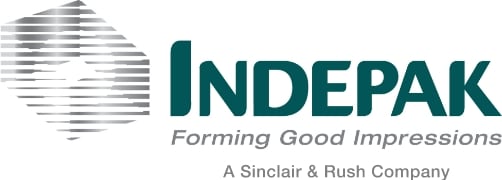These days there are tons of options for companies that want eco-friendly plastic packaging, and many of our clients ask us about biodegradable packaging. While this may be a great option for some, it’s by no means the only option available. Here are a few facts about biodegradable packaging and some of our options available at Indepak.
Most people assume that biodegradable packaging can simply be thrown into the regular trash bin and then it will simply biodegrade in a landfill. However, biodegradable materials typically have to be sent to a special facility in order for the biodegradation process to be complete.
Biodegradable packaging usually will not biodegrade in a landfill, because the conditions just aren’t suitable to encourage the materials to break down. Also, people often interchange the words “biodegradable packaging,” and “compostable packaging,” but they aren’t always the same.
Some biodegradable packaging is compostable, and opting for compostable plastics is often a safer bet. This is because many (but not all) compostable plastics can be tossed in a greenwaste bin, which makes it very easy for consumers to dispose of these items properly. With non-compostable biodegradable packaging, the consumer has to ensure that these packages make it to a facility that can biodegrade these items, and that’s less convenient, so the packages typically end up in the landfill where they might biodegrade eventually, but it could take many years.
Of course, using compostable materials and bioplastics still have the advantage that they usually are derived from renewable sources, which makes them attractive to consumers as well as companies seeking to reduce their overall carbon footprint.
While plastic often gets a bad rap, it’s important to consider the advantages of plastic, even non-biodegradable and non-compostable plastic. Plastic packaging, in general, can be a great option for many products because it protects your products from moisture, mold and tampering.
For food products and pharmaceuticals, plastic packaging provides a barrier that allows foods and medicines to remain safe and fresh for far longer than any other material. This can extend your market It’s also a very affordable option, which is a huge advantage.
At Indepak, we can use starch-based bioplastics to create many types of custom packaging, and we also can provide you with recycled materials, which is yet another sustainable option to consider.
Additionally, we are highly skilled at creating combination designs which incorporate plastic along with pulp or paper. For instance, we might create a trap blister for your product, which greatly can reduce the amount of plastic we use in general.
While biodegradable packaging is certainly one option to consider, there are many possibilities for those who are committed to the idea of reducing, renewing and reusing. As we stated above, we can reduce the amount of plastic we use, in general, and use recycled and recyclable materials. We also, can create packaging, such as tubs with lids, that consumer might just use again for other purposes.
Whether you select biodegradable packaging, compostable packaging or packaging with recycled content, be sure to highlight these sustainable choices somewhere on your packaging design. Consumers are looking for products with eco-friendly packaging, so it’s crucial to pass along this information so that consumers can find it.
If you are interested in biodegradable packaging or need any type of custom plastic packaging, from clamshells to blisters to trays and beyond, the team at Indepak can help. We have many sustainable options available, and can help you find a design that is as eco-friendly as possible as well as protective and affordable.





